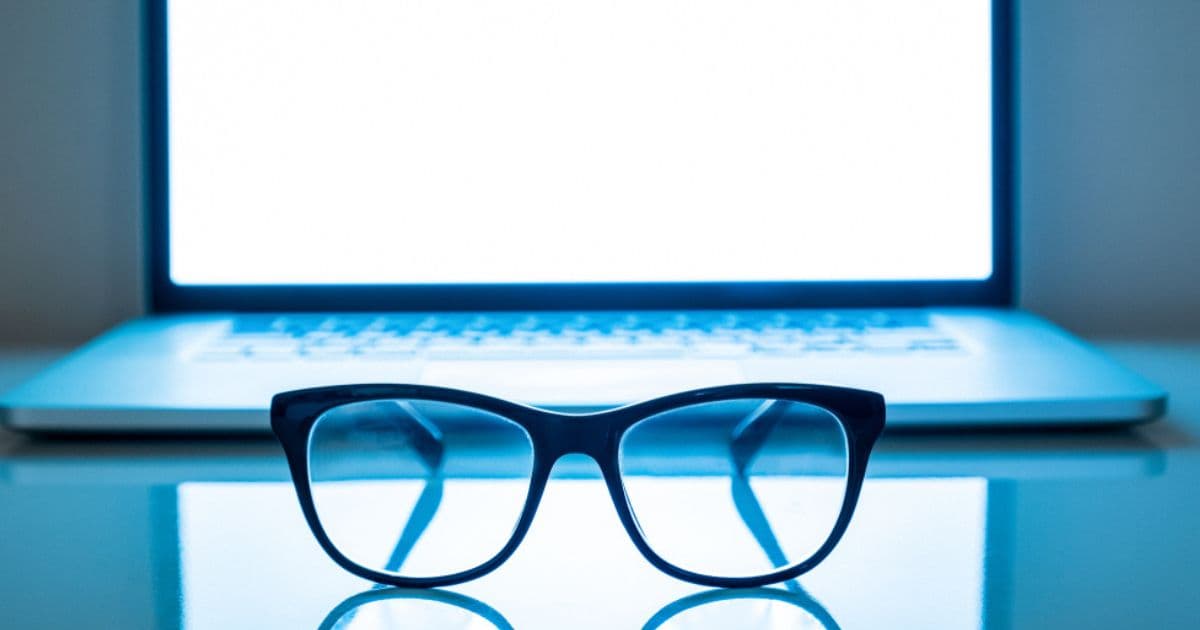Is blue light bad?

Blue light and Blue light computer glasses.
Blue Light: Is it bad for me?
How many hours do you spend in front of a screen?
With human evolution, our way of life has changed, we have gone from protecting ourselves from the sun to the extensive exposure of our bodies to sunlight where garments are lighter and leisure is geared toward the sun. In addition, our consumption of new technologies has changed, due to the emergence of two major technologies: LED lamps and the last generation of screens. Thus, nowadays we have increased our exposure to blue light.
Where is blue light?
Blue light is everywhere and sunlight is its main source, other sources include; digital screens, fluorescent and LED lighting, flat-screen television. It has a short wavelength and therefore produces a higher amount of energy. So from this, it is obvious that a given light source can produce lights of different qualities, and that the colder the light, the bluer there will be in the spectrum.
Is there any cause for concern with blue light?
Blue light waves are the among the shortest, highest energy wavelengths in the visible light spectrum and due to this, they flicker easily which creates a glare that can reduce visual contrast and affect the sharpness and clarity of the eye. This flickering may be attributed to one of the reasons for headaches, eye strain when in front of the computer or any electronic device for long hours.
Our eyes are not very good at blocking blue light rays from the sun, let alone its emission from other devices and virtually all visible blue light passes through the cornea and lens and reaches the retina. Therefore, prolonged exposure to blue light may cause damage to the retina and increase the risk of macular degeneration, which can lead to loss of vision.
Blue light and screens
Apart from LED lamps, the increased use of screens is also a major cause for concern. 60% of the population spends more than six hours a day in front of a digital device.
Electronic devices (Cell phones, computers, tablets, and flat-screen televisions) are among a few that uses the LED backlight technology (This technology helps to enhance screen brightness and clarity) and these LEDs emit very strong blue light waves. Due to their popularity, we are gradually being exposed to more and more sources of blue light and for longer periods of time.
We have seen that the luminance of screens is small compared to that of sunlight. That being said, not only do we use screens for hours a day, but we do not think of protecting ourselves as we do from sunlight. The blue light emitted is directly collected by the retina at a very short distance and the danger comes not from the total amount of light emitted but from the twofold risk of closeness and duration of exposure.
What are the health risks of blue light?
It is clear that we all receiving more and bluer light. So is “blue light” really harmful and should we be afraid?
Blue light itself is not bad, blue-turquoise light (465-495 nm) is essential to our vision. It contributes to our sleep-wake cycle, elevating our mood, boosting our awareness and helps memory function but there comes a problem when we are overexposed to it.
Chronic and prolonged exposure can lower the melatonin production (Hormone that regulates sleep) and disrupt your natural body sleep cycle and may cause insomnia and fatigue during the day.
It can also cause digital eye strain which is a medical issue that can affect work productivity and learning, its symptoms include blurry vision, dry eyes, headaches and the inability to focus. In addition, there's is growing medical evidence that overexposure to blue light may cause permanent eye damage by contributing to the destruction of cells in the retina which can lead to loss of vision.
Blue light and Blue light computer glasses
Blue light filtering glasses feature unique lenses that help to block out the high-energy visible (HEV) blue light emitted by digital screens. These monitor glasses filter UV and blue-violet light rays thereby reducing screen glare and preventing its harmful effect on the eye. They preserve the eye's overall well-being by letting essential blue-turquoise light (Good Blue Light) pass through and reducing visual fatigue.
Anyone can use computer glasses both those in need of vision correction or not and they can be worn like regular glasses. You can find stylish and affordable computer glasses at eOpticians, with anti-glare coating, blue light filter, and UV protection.
How to reduce the effect of Blue light
- Limit screen time use when you are not working
- Use a blue light filter app, if you use your device at night
- Blink constantly so as to prevent dry eye syndrome
- Get regular comprehensive eye exams
- Wear a blue light filter computer glasses - It increases the comfort of the eye when you're viewing digital devices for extended periods of time.
It is important not to forget that it is the accumulated effect over time that is dangerous and must be prevented. Early preventive measures should be taken and they should be long-term. Furthermore, importance should be placed on children as they are more vulnerable to blue light because their natural eye defenses are yet to develop and also the need for increased protection for older groups at risk: people who have had cataract surgery, most especially if they have not received yellow implants and those affected by age-related macular degeneration.
Good vision is essential for our day to day living and quality of life so let us not deprive ourselves of light but better understand it so as to reap its benefits without its risks.
